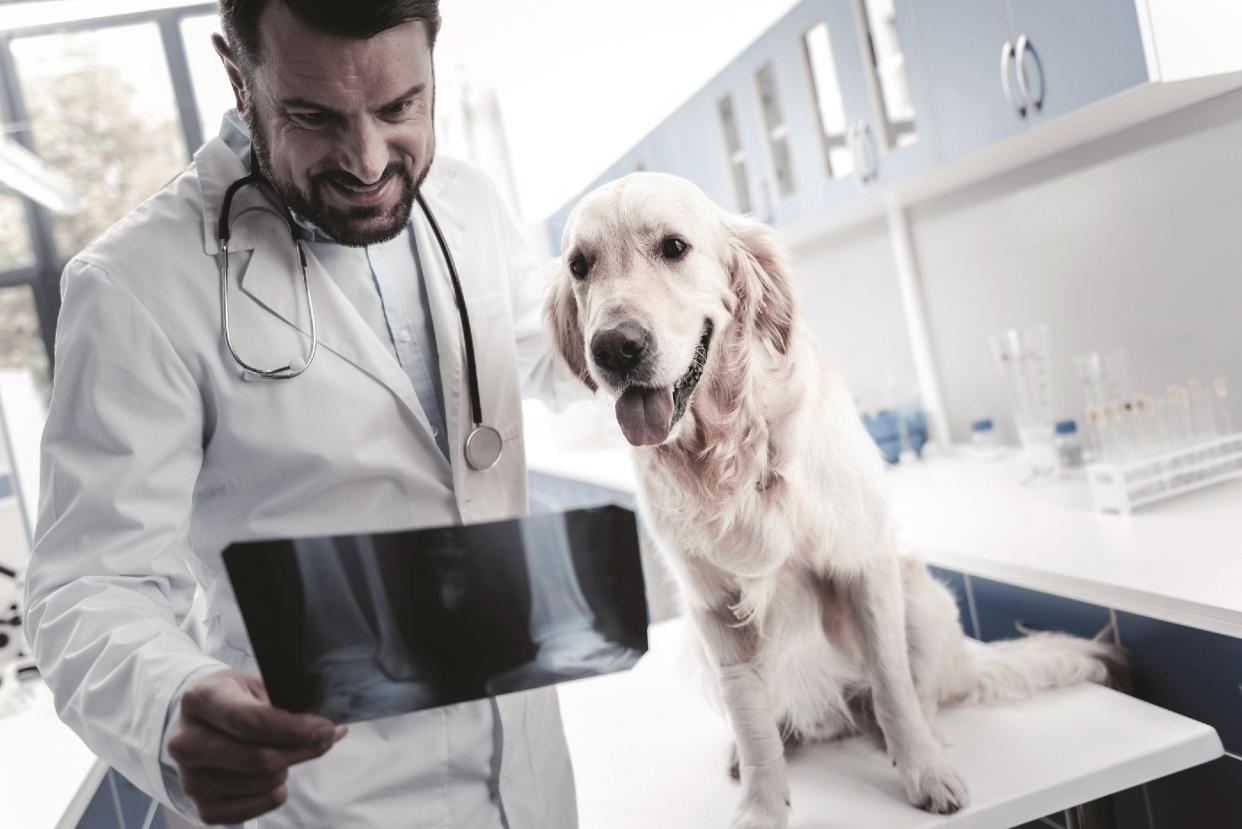Pre-Op Prep: 7 things your veterinarian wants you to know before your pet has surgery

If your pet is having surgery, whether it’s a spay/neuter procedure or an orthopedic repair, you may be wondering whether that blood work is necessary, why your pet can’t eat or drink beforehand, and how soon he’ll recover from the experience. The following information can help ensure that your pet has a good experience and rapid recovery.
Pre-test protocol. The lab work your veterinarian recommends before surgery is to make sure your pet doesn’t have any liver or kidney problems that could interfere with the ability to metabolize the anesthetic and to ensure that your pet isn’t anemic, which could be an issue in case of blood loss.
Comfort begins at home. Your veterinarian may prescribe gabapentin or trazodone for you to give at home before bringing your pet in. High levels of stress spark chemical changes in the body that can weaken the immune system. Stress can also exacerbate the sensation of pain. “If we have those drugs onboard before there are any pain impulses, they’re much more effective,” says Tamara Grubb, DVM, assistant clinical professor of anesthesia and analgesia at Washington State University College of Veterinary Medicine. Medicating pets beforehand can help ensure that they arrive at the clinic calm. Other pre-surgical stress busters include playing soothing music specially composed for dogs and cats and spraying feline and canine pheromones, artificial chemical messengers that create a sense of security.
Cats are special. New anesthesia guidelines by the American Association of Feline Practitioners recognize that cats have special needs when it comes to sedation and anesthesia. The guidelines address ways to prevent common cat complications related to anesthesia. Your veterinarian can provide you with a handout that explains the anesthesia process.
Nail nausea. Nausea and vomiting from carsickness before surgery or as a result of anesthesia can affect how well a pet does during and after anesthesia. Veterinary analgesia and anesthesia specialist Jordyn Marie Boesch at Cornell University College of Veterinary Medicine encourages veterinarians to give maropitant, an anti-nausea medication, to cats and dogs orally the night before anesthesia or to send it home with owners to give it with the pet’s dinner the night before surgery. “A single dose will prevent vomiting for 24 hours,” she says. “We have found this to be extremely effective at preventing vomiting due to pre-medication for general anesthesia.”
Tell your veterinarian about supplements and medications your pet takes. Some herbal supplements can increase bleeding during surgery or interfere with the drugs being used, says veterinarian Sheilah Robertson, a specialist in anesthesia and pain management. Don’t leave anything out, even if it’s something as innocuous as fish oil pills or a baby aspirin. Even low doses of aspirin can increase the risk of excessive bleeding during surgery.
Your pet accidentally got breakfast the day of surgery. Now what? Be honest. “It’s not a problem as long as we know,” Dr. Robertson says. And it’s OK to give oral medications pre-operatively. Your veterinarian isn’t referring to those when she says nothing by mouth beforehand.
Post-surgical care. Icing the incision (ask your vet how to do it and how often); providing deep, soft bedding if your pet has a fracture or bruising; and feeding canned food after tooth extractions are some simple things you can do at home to help your pet recover more quickly and less painfully. Give pain medication as directed, and call your veterinarian if your pet appears to be in pain. “Owners know the patient best, and if an owner tells me they believe their pet’s pain is not well controlled, I take that very seriously,” Dr. Boesch says.
Do you have a pet question? Send it to askpetconnection@gmail.com or visit Facebook.com/DrMartyBecker. Pet Connection is produced by veterinarian Dr. Marty Becker, journalist Kim Campbell Thornton, and dog trainer/behavior consultant Mikkel Becker.
This article originally appeared on South Bend Tribune: Pet Connection: 7 things to know before your pet has surgery

